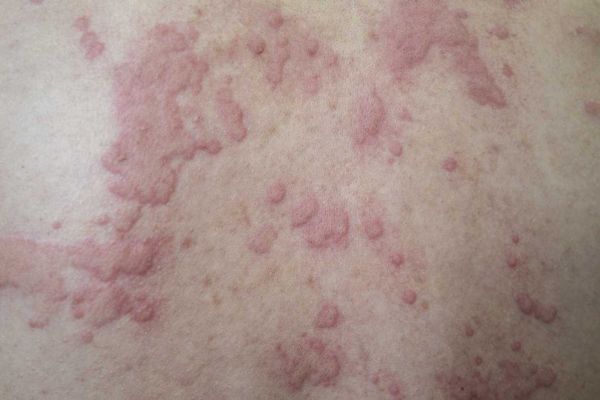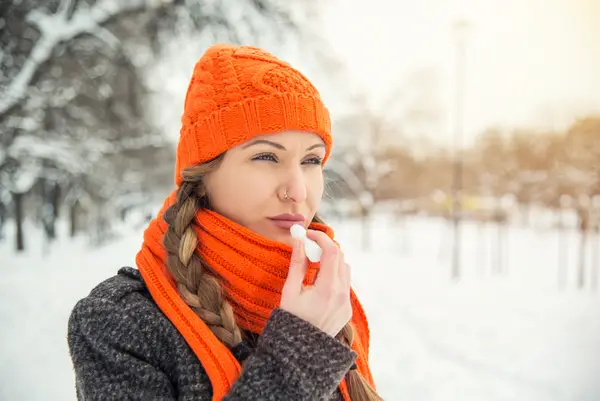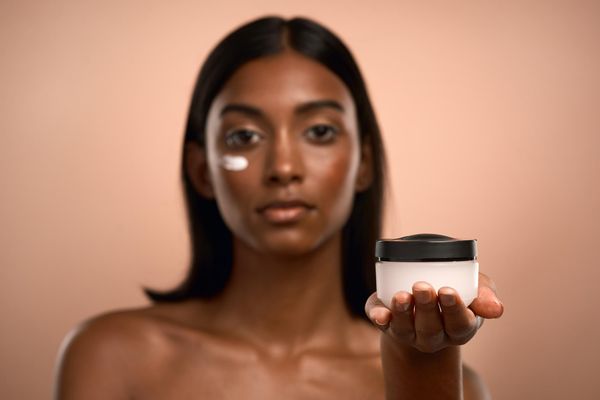While some women have a naturally glowing, perfect complexion, most of us do not. Starting with the oiliness and zits of adolescence, we spend untold hours and dollars pursuing clear skin.
Understanding your skin type is one step in the right direction. You want to make sure to use the right products for your skin and avoid ones that will aggravate it. Each skin type has its unique needs.
For example, if your skin is oily, a lightweight moisturizer applied once a day might be enough for you, while those with drier skin would need a heavier formulation applied both morning and evening. If you have combination skin, with both dry and oily areas, you need a mild cleanser, according to the American Academy of Dermatology.
Top tips to treating your skin right
For combination skin:
- Use a mild cleanser that won't strip the natural oils from your skin.
- Apply a medium-weight, broad-spectrum sunscreen.
- Use an over-the-counter retinol cream or prescription retinoid cream if you want to lighten dark spots, improve skin texture and even out color, plus help prevent fine lines and wrinkles.
- When using a retinol (which can irritate skin), gradually increase the strength, and always follow with a moisturizer to help prevent dryness or peeling.
For dry skin:
- Wash twice daily with a gentle or creamy cleanser. For extremely dry skin, consider cleansing only in the evening; in the morning, just rinse with cold water (this will help skin maintain its natural oils).
- Apply a moisturizer with sunscreen immediately after cleansing. Doing so will help seal in moisture.
- When choosing a moisturizer with sunscreen, look for one with a creamy and smoothing consistency and ingredients including antioxidants, dimethicone, grape seed oil or petrolatum, which can help keep skin moist.
- Reapply moisturizer halfway through the day if your skin feels tight.
- Because dry skin can be sensitive, exfoliate only once a week.
- If using retinols, apply every other night to start, always following with a moisturizing cream.
For oily skin:
- This type may require cleansing two to three times a day. But use caution, because too much washing can increase oil production.
- Use an oil-free, non-comedogenic (meaning it won't block your pores) foaming cleanser with benzoyl peroxide or salicylic acid to prevent breakouts.
- Even though skin is oily, it still may need a moisturizer. Use one that is lightweight and won't block your pores.
- Avoid exfoliating during acne breakouts, because it can worsen the situation.
- If you are prone to acne, avoid products containing ingredients like cocoa butter, cinnamon and coconut oil.
- Apply a retinol gel or serum in the evening to help soften fine lines and prevent future breakouts.
For sensitive skin:
- Wash face just once each day.
- Avoid exfoliation, which can aggravate and worsen skin.
- Steer clear of products containing fragrances, soaps or alcohols; instead, look for calming ingredients like green tea polyphenols, chamomile and aloe.
- Use products with as few ingredients as possible.
- Apply a cream-based moisturizer in the morning if your skin is dry; this can help reduce irritation. (Make sure skin is dry before applying, because the products penetrate more deeply into damp skin and can cause irritation for someone with sensitive skin.)
- Use a mild retinoid each night to help prevent fine lines and wrinkles; always follow with a moisturizer to help promote collagen.
For all skin, all over your body:
- Regardless of your skin type, everyone should use a water-resistant, broad-spectrum sunscreen with an SPF of 30 or higher every day. Apply it 15 minutes before going out, and use enough—that means about one ounce to cover your entire body (which is about the amount in a shot glass or the amount you can hold in the palm of your hand).
- Make sure to cover your ears, neck and tops of your feet and legs with sunscreen.
- If your hair is thinning, apply to your scalp (or wear a wide-brimmed hat).
- Don't forget your lips—use a lip balm with an SPF of at least 15.
And remember: Cloudy days and winter don't mean you won't get burned. The sun's harmful rays are there (even if you can't see them) every time you step outside!







